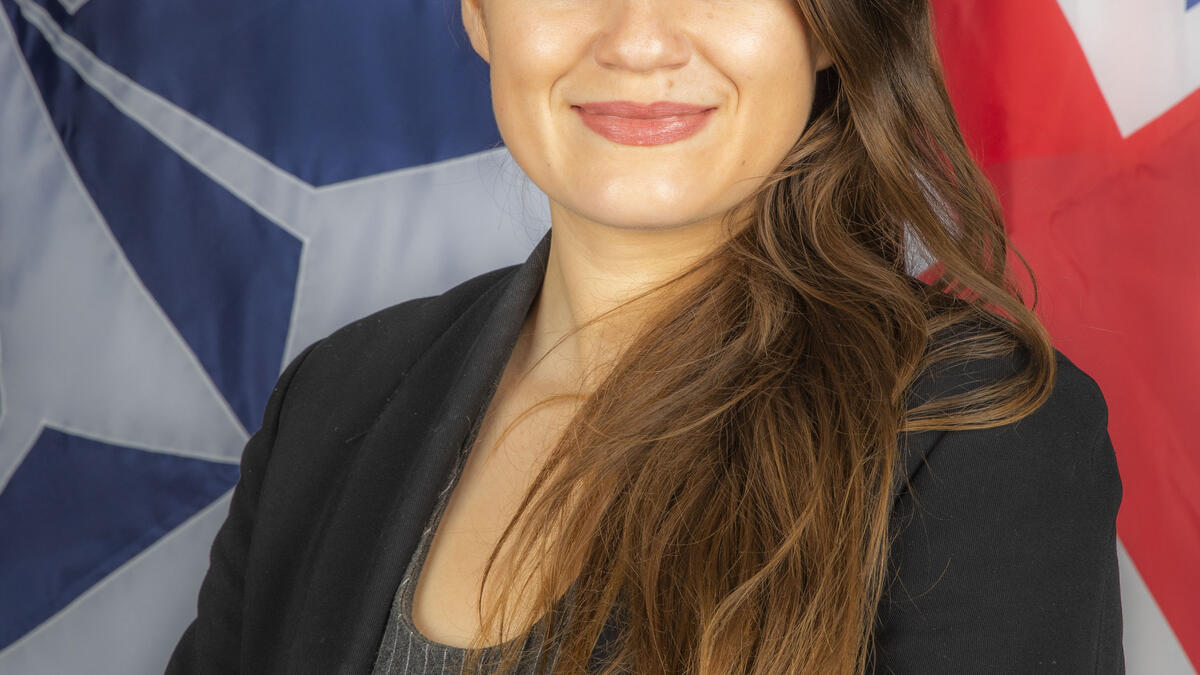Interplanetary Initiative welcomes its first fellow

ASU's Interplanetary Initiative welcomed Theodora Ogden to its ranks this month as its first Interplanetary Fellow.
Arizona State University's Interplanetary Initiative welcomed Theodora Ogden to its ranks this month as its first Interplanetary Fellow.
Ogden joins the Initiative from RAND Europe, where she’s been doing research on emerging space-based technologies, defense and the strategic space environment. She originally planned a career in law and got a master’s degree in human rights law until she did a legal internship for NATO in Norfolk, Virginia. It was there that Ogden started working on topics related to emerging technologies, new weapons systems, autonomy, artificial intelligence, and the legal implications and issues of responsibility and liability related to new emerging technologies.
After deciding to make the change, Ogden earned a second master's degree in security management, which brought her to her position at RAND.
For the Interplanetary Fellowship at ASU, she is working on a project that examines countries that are developing their autonomous capabilities in space.
“I’m looking at a number of countries — both developing and developed — and some of the ways in which we can encourage space to become more inclusive, while at the same time considering the risks and potential threats of having more actors in that domain,” she said.
Ogden wanted to work with the Interplanetary Initiative because she felt that the diversity of perspectives the initiative provides created the ideal environment for her work.
“There are many backgrounds and disciplines that come together, bringing together experts from different fields and asking the important questions. Questions like, ‘What does new space look like?’ New actors are emerging and developing countries have more capabilities than ever in space,” she said.
The Interplanetary Initiative developed the fellowship to further its mission of opening access to space to everyone, and Ogden’s project was a perfect fit.
“While we received many strong proposals, Theodora’s stood out as it was so well aligned with the fellowship’s goals, namely to deliver tangible and actionable insights by working across sectors and disciplines, with the goal of catalyzing greater access to space by new groups,” said Jessica Rousset, deputy director of the Interplanetary Initiative.
The fellowship runs through June.
More Science and technology

ASU-led space telescope is ready to fly
The Star Planet Activity Research CubeSat, or SPARCS, a small space telescope that will monitor the flares and sunspot activity…

ASU at the heart of the state's revitalized microelectronics industry
A stronger local economy, more reliable technology, and a future where our computers and devices do the impossible: that’s the…

Breakthrough copper alloy achieves unprecedented high-temperature performance
A team of researchers from Arizona State University, the U.S. Army Research Laboratory, Lehigh University and Louisiana State…

